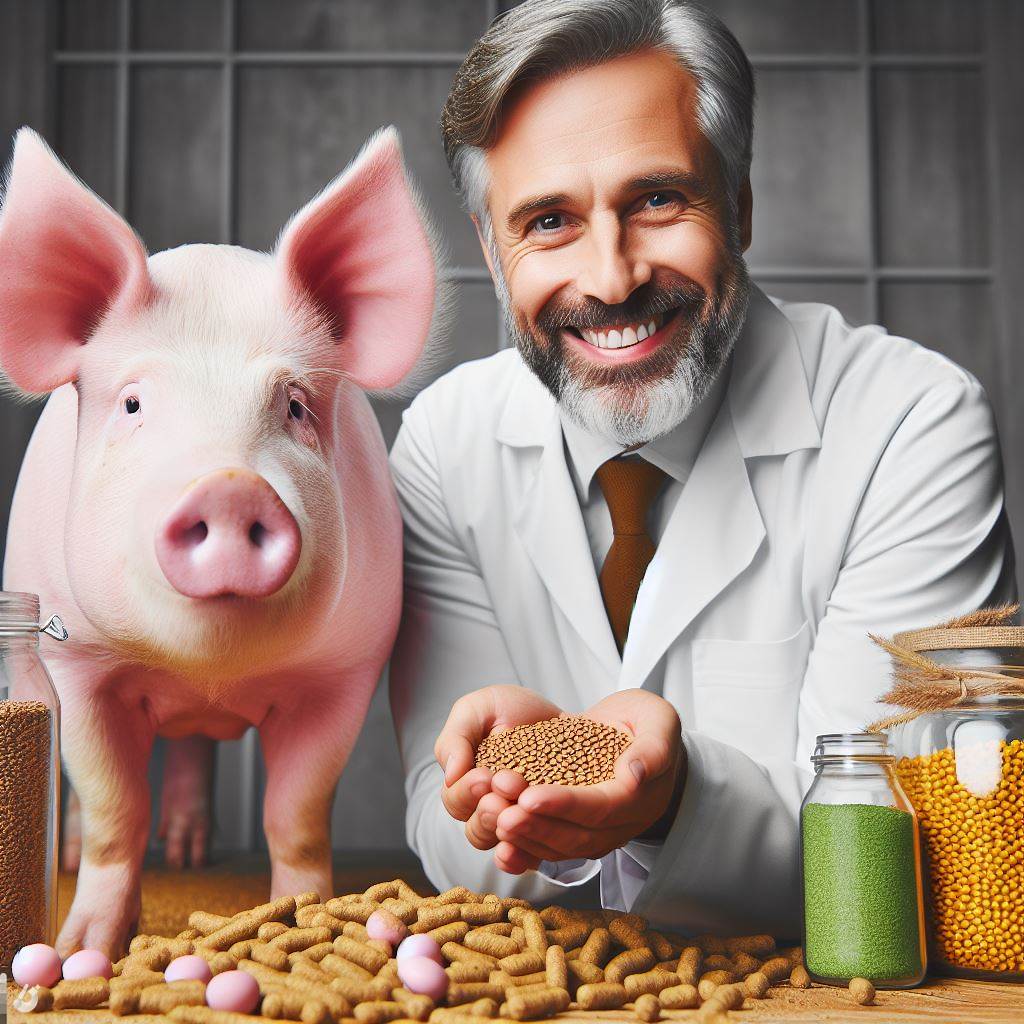Introduction
Preventive health care for cattle is essential for maintaining the well-being and productivity of these animals.
This guide explores essential practices to proactively manage and maintain the health of these valuable livestock, ensuring optimal productivity.
A. Importance of preventive health care for cattle
Preventive health care helps to detect and minimize the risk of diseases, leading to improved herd health.
Regular vaccinations, proper nutrition, and regular check-ups can prevent the spread of contagious diseases among cattle.
his not only ensures optimal herd productivity but also minimizes treatment costs, supports animal welfare, and safeguards the sustainability of cattle farming operations.
B. Brief overview of the topic
Preventive health care measures such as deworming, proper housing, and hygiene play a crucial role in ensuring cattle’s overall health.
Regular monitoring of cattle’s body condition score and weight helps in identifying any health issues promptly.
Proper biosecurity measures should be implemented to prevent the introduction and spread of diseases within the herd.
Routine veterinary visits and diagnostic testing help in early detection and effective management of various illnesses in cattle.
Essentially, preventive health care for cattle is vital for their overall well-being, productivity, and enhanced farm profitability.
Understanding Preventive Health Care for Cattle
A. Definition and Purpose
Preventive health care for cattle involves proactive measures to maintain their well-being and prevent diseases.
It serves two crucial purposes:
- Disease Prevention: Regular vaccinations and screenings shield cattle from common illnesses, minimizing the risk of outbreaks.
- Herd Management: Preventive care enhances overall herd health, ensuring optimal productivity and longevity.
- Parasite Control: Timely deworming and pest management reduce the impact of parasites on individual animals and the entire herd.
- Nutritional Planning: Balanced diets tailored to cattle needs prevent nutritional deficiencies, fostering robust health.
- Environment Optimization: Creating a clean and suitable living environment minimizes stress and exposure to pathogens, enhancing preventive efforts.
B. Benefits of Preventive Health Care
- Cost Savings: Investing in preventive care proves more economical than treating diseases after they’ve manifested.
- Increased Productivity: Healthy cattle are more productive, providing better milk yield, higher reproduction rates, and superior meat quality.
- Reduced Antibiotic Use: Proactive health measures diminish the need for antibiotics, contributing to a healthier food chain and addressing antibiotic resistance concerns.
- Early Disease Detection: Regular check-ups enable early identification of potential health issues, allowing prompt intervention and minimizing the spread of diseases.
- Longevity and Reproductive Success: Preventive care contributes to longer, healthier lives for cattle and positively impacts reproductive success, vital for sustainable farming.
In a nutshell, understanding and implementing preventive health care for cattle is paramount.
It not only safeguards individual animals but also fortifies the entire herd against potential health threats.
Embracing these practices ensures the well-being of cattle, promotes sustainable farming, and secures the agricultural future.
Transform Your Agribusiness
Unlock your farm's potential with expert advice tailored to your needs. Get actionable steps that drive real results.
Get StartedRead: Sustainable Grazing: Balancing Land & Livestock
Common Preventive Health Care Practices for Cattle
In safeguarding the health of your cattle, proactive measures play a pivotal role.
Let’s delve into essential preventive practices.
A. Regular Vaccinations
1. Types of Vaccines
- Core Vaccines: Protect against widespread diseases like bovine respiratory syncytial virus (BRSV).
- Non-Core Vaccines: Address specific threats based on regional factors.
2. Recommended Vaccination Schedule
- Calves: Initiate vaccinations early for diseases like clostridial infections.
- Adults: Ensure booster shots to maintain immunity against prevalent diseases.
B. Parasite Control
1. Types of Parasites in Cattle
- Internal Parasites: Worms like Ostertagia pose a threat to the gastrointestinal system.
- External Parasites: Ticks and lice can cause discomfort and transmit diseases.
2. Effective Methods of Control
- Strategic Deworming: Administer anthelmintics based on fecal egg counts.
- Pasture Management: Rotate pastures to minimize parasite exposure and break life cycles.
C. Nutrition Management
1. Balanced Diet for Cattle
- Quality Forage: Ensure access to nutrient-rich forage for optimal health.
- Supplemental Feed: Provide mineral supplements to meet nutritional requirements.
2. Importance of Proper Feeding Practices
- Consistency: Maintain a consistent feeding schedule to avoid digestive issues.
- Monitoring Body Condition: Adjust feeding plans based on cattle body condition scores.
D. Regular Health Check-Ups
1. Necessary Veterinary Examinations
- Physical Exams: Routine checks to assess overall health and detect issues early.
- Reproductive Health: Ensure breeding soundness examinations for reproductive efficiency.
2. Identifying and Addressing Potential Health Issues
- Swift Action: Address signs of illness promptly to prevent the spread of diseases.
- Record Keeping: Maintain health records for each animal to track vaccinations and treatments.
By adhering to these preventive health care practices, you create a foundation for the well-being of your cattle.
Regular vaccinations, parasite control, nutrition management, and health check-ups are integral components of a comprehensive strategy.
Proactive measures today ensure a healthier and more productive herd tomorrow.
Read: Livestock Behavior: Understanding Your Animals

Learn More: Smart Barns: Integrating Tech in Livestock Care
The Role of a Farmer in Preventive Health Care
Maintaining the health of your cattle is not just a responsibility; it’s a crucial aspect of successful farming.
To achieve this, active participation and a proactive approach are key.
Here’s how you, as a farmer, can play a pivotal role in preventive health care:
A. Building a Strong Relationship with a Veterinarian
- Regular Check-ups: Schedule routine veterinary visits to monitor the overall health of your cattle.
- Open Communication: Foster clear and open communication with your veterinarian to address concerns promptly.
- Emergency Preparedness: Have a reliable veterinarian’s contact for emergencies; swift action is vital.
- Vaccination Schedules: Work closely with your veterinarian to establish and follow a robust vaccination schedule.
- Treatment Plans: Understand prescribed treatments and administer them as directed by the veterinarian.
B. Educating Oneself about Cattle Health
- Continuous Learning: Stay updated on the latest developments in cattle health through reputable sources.
- Identifying Signs: Learn to recognize early signs of illness or distress in your cattle.
- Nutritional Knowledge: Understand the nutritional requirements of different age groups and adjust feed accordingly.
- Disease Awareness: Educate yourself about prevalent diseases and their prevention strategies.
- Record Keeping: Maintain detailed health records to track vaccinations, treatments, and any health issues.
C. Implementing Effective Biosecurity Measures
- Quarantine Procedures: Isolate new arrivals to prevent the spread of potential diseases to the existing herd.
- Footbath Stations: Set up footbaths at entry points to minimize the risk of disease transmission.
- Sanitation Practices: Regularly clean and disinfect feeding and watering equipment to maintain a hygienic environment.
- Isolation Areas: Designate specific areas for sick or recovering animals to prevent contagion.
- Visitor Protocols: Implement strict protocols for farm visitors to minimize the risk of introducing infections.
By actively participating in these measures, you contribute significantly to the well-being of your cattle and ensure a healthier, more productive herd.
Remember, preventive health care is a collaborative effort between farmers and veterinarians, and your commitment plays a pivotal role in the success of your farm.
Read: Livestock Disease Prevention: Must-Know Tips
Economic Benefits of Preventive Health Care for Cattle
Preventive health care for cattle offers several economic benefits, making it a crucial aspect of livestock management.
By focusing on early intervention and disease prevention, farmers can significantly reduce treatment costs, improve productivity, profitability, and minimize the risk of disease outbreaks.
A. Lower Treatment Costs
Implementing preventive health care measures helps reduce veterinary expenses associated with treating diseases.
Regular check-ups, vaccinations, and deworming keep cattle healthy, preventing the need for expensive treatments later on.
B. Improved Productivity and Profitability
Well-maintained cattle are more productive and yield better profits for farmers.
Preventive health care ensures that cattle remain in optimal health, allowing them to reach their genetic potential for growth and milk production.
This leads to increased productivity and higher profits in the long run.
Regular vaccination programs protect cattle from infectious diseases, reducing the chances of transmission within the herd and preventing potential production losses.
By maintaining the health of each animal, farmers can maximize production levels and overall profitability.
C. Reduced Risk of Disease Outbreaks
Preventing diseases before they occur is crucial to avoid disease outbreaks.
Showcase Your Farming Business
Publish your professional farming services profile on our blog for a one-time fee of $200 and reach a dedicated audience of farmers and agribusiness owners.
Publish Your ProfileOutbreaks not only impact individual animals but also pose a significant threat to the entire herd, leading to increased mortality rates and reduced productivity.
Through preventive health care measures, such as proper nutrition, vaccination protocols, and biosecurity practices, farmers can eliminate or minimize the risk of various diseases.
This ensures the well-being of the entire herd, as well as the long-term sustainability of the farm.
Implementing regular health screenings allows farmers to detect potential diseases early, preventing their spread and minimizing the financial burden associated with treatment and management.
Proactive measures also help safeguard neighboring farms by preventing disease transmission.
Preventive health care becomes even more critical when considering the cost of treating a disease outbreak.
Outbreaks often require extensive medical interventions, isolation protocols, and additional labor, significantly impacting both the financial and emotional well-being of farmers.
In addition to direct economic benefits, preventive health care for cattle also promotes animal welfare and reduces the use of antibiotics.
By prioritizing prevention, farmers can avoid unnecessary suffering in livestock and minimize the need for treatments that may lead to antibiotic resistance.
To summarize, preventive health care for cattle brings significant economic benefits.
By lowering treatment costs, improving productivity, and profitability, farmers can secure long-term success.
Moreover, preventive measures significantly reduce the risk of disease outbreaks, ensuring the overall well-being of the herd and neighboring farms.
Prioritizing such preventive interventions contributes to sustainable and responsible livestock management.
Read: Smart Fencing Solutions for Livestock Safety
Conclusion
A. Recap of the importance of preventive health care for cattle
Overall, preventive health care for cattle is essential for maintaining the health and productivity of the animals.
Regular veterinary check-ups, vaccinations, and proper nutrition are crucial for disease prevention.
By investing in preventive measures, farmers can save on treatment costs and ensure the overall well-being of their cattle.
B. Encouragement to farmers to prioritize preventive measures
It is important for farmers to prioritize preventive health care by implementing proper hygiene and biosecurity measures.
This includes regular cleaning of barns, proper disposal of manure, and monitoring for any signs of illness.
Additionally, farmers should collaborate with veterinarians and follow their advice on vaccinations and deworming schedules.
By taking these preventive measures, farms can minimize the risk of disease outbreaks and improve the overall health and productivity of their cattle.
Ultimately, preventive health care is a wise investment that benefits both the cattle and the farmers.




